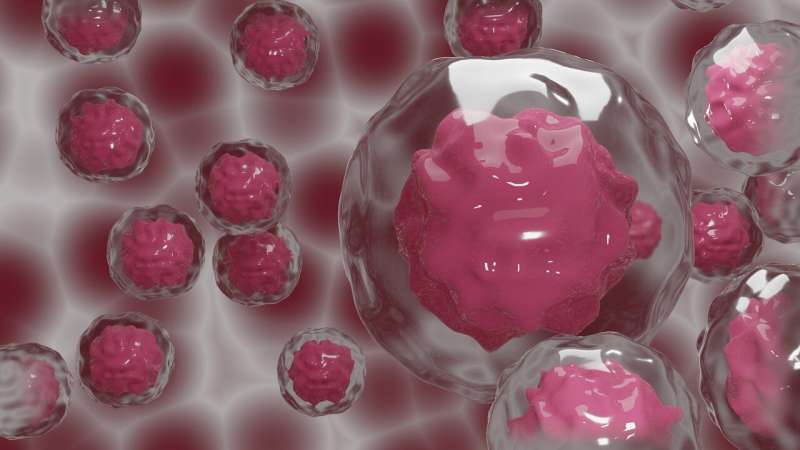Credit: CC0 Public Domain
Scientists have discovered a molecule that can selectively kill cells of a hard-to-treat subtype of breast cancer, which could lead to a new therapy.
The study, led by researchers at RCSI University of Medicine and Health Sciences, is published in the current edition of Science Advances.
Triple negative breast cancer is a subtype of breast cancer which is mainly treated with chemotherapy. Unfortunately, up to 70% of patients with this form of breast cancer develop resistance to treatment.
The researchers tested different molecules to see if they could selectively kill the cells of this type of breast cancer while sparing normal cells. They found that a specific molecule, BAS-2, was able to do this.
"Our aim now is to develop the small molecule into a more drug-like compound and to assess if we can harness the new function for potentially improved treatment of patients," said Dr. Tríona Ní Chonghaile, the study's corresponding author and an RCSI lecturer in Physiology and Medical Physics.
To better understand how the molecule killed the cells, the researchers confirmed that it inhibited an enzyme called HDAC6. Using state-of-the art mass spectrometry, the researchers identified, for the first time, that HDAC6 plays a key role in altering energy in these cancer cells.
More information: Catríona M. Dowling et al, Multiple screening approaches reveal HDAC6 as a novel regulator of glycolytic metabolism in triple-negative breast cancer, Science Advances (2021). DOI: 10.1126/sciadv.abc4897
Journal information: Science Advances
Provided by RCSI























